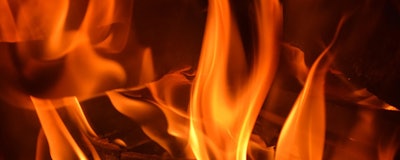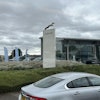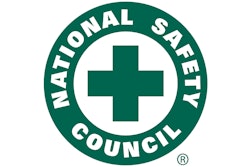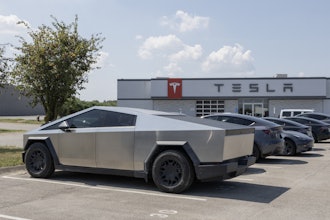
The stats behind electrical fires are pretty shocking: between 2010-2014, there were more than 45,000 home electrical fires, resulting in 420 deaths, 1,370 injuries and $1.4 billion in damages. The damage from business-related electrical fires wasn’t far off from these numbers, either. All of this, from an electrical outlet.
So, what causes an electrical fire? Unfortunately, almost anything can energize an electrical fire — faulty wiring, overheated and overcharged devices, damaged power cord, old appliances...the list could go on. Follow these four tips to avoid a disaster — an expensive one — as the numbers above show.
Avoid Using Water
Should a fire spark from an electrical outlet, your first reaction may be to toss water on it. Actually, that’s the last thing you want to do. In this situation, water acts as a conductor, meaning it allows current to travel from the source, resulting in electrocution. It doesn’t stop at the electrical outlet — water can actually conduct more electricity throughout the area, with the potential of sparking flammable materials, leading to a much bigger problem.
Do You Have the Right Fire Extinguisher?
There are five classes of fire, and several types of fire extinguishing agents, all which serve a different purpose. And not all of them properly alleviate an electrical fire. You probably have a few around your business, so which one do you turn to?
An extinguisher with a Class C label is the best solution because it uses an electrically nonconductive extinguishing agent specific to electrical fires. Two types of Class C fire extinguishers that can be effective are: an ABC powder fire extinguisher and a water mist fire extinguisher.
An ABC powder extinguisher is the most common to have on hand. As a powder extinguisher, it sprays a chemical powder composed of monoammonium phosphate, which acts as a blanket over the fire and suffocates it. Unlike water extinguishers, ABC units can effectively break the chain reaction in a liquid or gas fire.
Another type of fire extinguisher appropriate for a Class C fire is a water mist fire extinguisher.This extinguisher uses technology that accommodates A and C class fires by releasing microscopic water molecules that can fight the fire. These small droplets displace the oxygen available to fuel the fire by evaporation. The most unique feature of this extinguisher is that the minerals have been removed from the water — or de-ionized. And, even though we mentioned to not use water on electrical fires, this type is actually beneficial because the de-ionized water won’t act as a conductor.
So you have the right extinguisher on hand, now what? Make sure your team understands how to use it utilizing the P.A.S.S. method — pull, aim, squeeze, and sweep.
Cut the Power Source
Another option for putting out the fire before it spreads beyond the electrical source is to unplug or shut off the power leading to the item causing the fire. Make sure this is done safely — there will continue to be a source of ignition as long as electricity is powering the appliance or equipment. Either you won’t be able to kill the fire, or it could continue reigniting if the power is not cut off properly.
Prevent Future Fires
To prevent future electrical fires, take a walk around your facility and see if there are any fire hazards — damaged or old wiring and overloaded outlets, for example. Ensure your electrical cords aren’t twisted, frayed or showing exposed wires. Double check the power strips to make sure they aren’t overloaded and that they include internal circuit breakers. These simple steps can prevent future electrical accidents. Most importantly, make sure you have the proper fire extinguisher on-hand to quickly alleviate the fire.
Being aware of these four important aspects of an electrical fire can only benefit your business in the long run. Consider partnering with a fire and security company who can educate your team on the importance of fire protection for your business.
Billy is Vice President of General Products at Koorsen Fire and Security.























